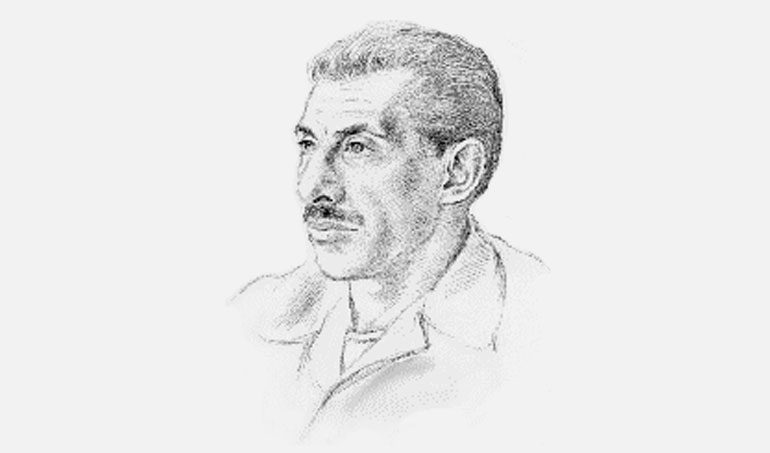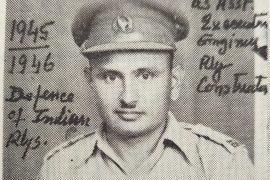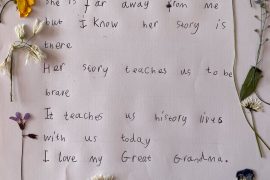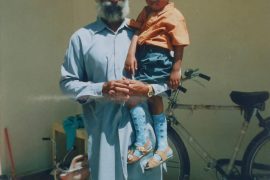Currently British Muslims are marginal to the story of the nation. Yahya Birt argues that this can only change for the better if Muslim communities support initiatives to recover and present their own history.
There are many ways in which we reflect upon and produce new versions of the story of Britain. This is both to make sense of the present and to project our hopes and fears on to the future. It is unsurprising that British Muslims, around half of whom were born in the UK, are interested in exploring their own historical roots in Britain. As part of this exploration, the question naturally arises as to how well this strand of British history is reflected in our national cultural life. A partial answer lies in looking at how British Muslims are represented in one of the key cultural institutions concerned with British history – The Dictionary of National Biography.
With its first edition dating from the late nineteenth century, the Dictionary is the equal of institutions like the BBC and the National Trust in terms of telling our national story. Taken over by the University of Oxford in the late 1990s, a second edition of sixty volumes was published in 2004. Since 2005, it has been made available online through subscription and has nearly 60,000 biographies described in 70 million words, and counting. It is currently updated three times a year.
The broad criteria for inclusion in the Oxford Dictionary of National Biography (ODNB), as it is now known, are threefold. First of all you have to be dead. Secondly you have to have left a mark on an aspect of national life for good or for ill. And finally, you don’t have to have been resident in the UK as such but rather to have met the second criterion.
But leaving this final criterion aside for a moment, a search reveals that twenty-seven British Muslims are featured in the ODNB. For argument’s sake, I’ve excluded non-resident Muslims who had an impact on British life, as well as those who, like Iqbal and Jinnah, only stayed in Britain for a relatively short period to complete their studies.
So – according to what I hope are defensible criteria for singling out British Muslims – the ODNB list in order of their death dates includes twenty-four men and three women in total: John Ward [called Issouf Reis, Captain Wardiyya] (c.1553–1623?), Mehemet von Königstreu (c.1660–1726), Joseph Pitts (1663–c.1735), Ayuba Suleiman Diallo (c.1701–1773), Thomas Pellow (b. 1703/4), Edward Wortley Montagu (1713–1776), Efendi Osman [formerly William Thomson] (b. before 1800, d. 1835), Deen Mahomed (1759–1851), Lord Stanley (1827–1903), “Munshi” Abdul Karim (1862/3–1909), Sir Jalaluddin Thomas Lauder Brunton (1844–1916), Saiyid Ameer Ali (1849–1928), William Henry Quilliam [known as Sheikh Abdullah Quilliam; Haroon Mustapha Leon] (1856–1932), Khwaja Kamal-ud-Din (1870–1932), Lord Headley (1855–1935), Marmaduke Pickthall (1875–1936), Noor Inayat Khan (1914–1944), Abdullah Yusuf Ali (1872–1953), Harry St John Bridger Philby (1885–1960), Lady Evelyn Cobbold (1867–1963), Kalim Siddiqui (1933–1996), Attia Shahid Hosain (1913–1998), Martin Lings (1909–2005), Zaki Badawi (1922–2006), Aleksandr Valterovich Litvinenko (1962–2006), Gai Eaton (1921–2010) and Michael Barry (1941–2011). To my mind the list is a decent start but it is far from exhaustive and it is too unrepresentative – with fifteen out of the twenty-seven being converts, three of whom experienced forced conversions (Pitts, Pellow and Osman).
A Facebook discussion I initiated recently about who else might be included in the ODNB showed me that the story we British Muslims tell about our history in Britain is still in many separate strands. These strands have yet to be woven into a single rope that we could lay claim to as a grand narrative we might comfortably identify with. However, the appetite to work together to shape such a unifying narrative is unmistakable.
Out of this preliminary conversation, a tentative long list of new candidates for the ODNB was formed. It was clear from this online exchange that a significant contribution to community life as opposed to national life could be separate matters. So would it be better for an Encyclopaedia of British Islam project to be initiated to help map what is currently terra incognita before a real impact could be made in reshaping the national story? And does a lasting contribution to Muslim community life constitute an aspect of national life that would meet the ODNB’s selection parameters or not? The experience of other communities in Britain certainly seems to indicate that a concerted effort in recovering their own histories with the assistance of academics is necessary before any serious headway can be made to identify their place within the national story. In other words, if we cannot identify its significance for ourselves then we cannot explain its significance to others.
In the long list, the additional proposed entries range from the sixteenth century up to 2015 and include yet more converts, but also pirates, poets, artists, aristocrats, businessmen, soldiers, actors, terrorists, orators, scholars, activists and Sufis. Sadly no one suggested any additional women.
Some of the notables mentioned were John Nelson (fl. 16 cent.), one of the earliest recorded English converts to Islam, John [Yahya-en-Nasr] Parkinson (1874–1918), Scottish poet and essayist, Hedley Churchward (d. 1929), artist and one of the earliest British Muslim converts to have performed the Hajj, Sir Abdullah Archibald Hamilton (1876–1939), 5th Baronet of Trebishun, Breconshire and 3rd Baronet of Marlborough House, Hampshire, Taherally Rehmanji Suterwalla (1914–1970), founder of the TRS food wholesaler and cash-and-carry chain, Khudadad Khan (1881–1971), the first Indian Army winner of the Victoria Cross, during the First World War (representative of several other winners of VCs and the St George’s Cross), William Burchell Bashyr Pickard (1889–1973), novelist and poet, Dino Shafeek (1930–1984), TV actor and star of Mind Your Language and It Ain’t Half Hot, Mum, Mohammad Sidique Khan (1974–2005), ringleader of the 7/7 bombers, and Mohammed John Webster (1913–2008), orator and public speaker.
Some of the scholars and activists included Mohammad Amir Ahmad Khan (1914-1973), Raja of Mahmudabad, founder of the All-India Muslim League and the First Director of the Regent’s Park Mosque, Mahmood Ahmed Mirpuri (1945–1988), imam and pioneering figure in the Jamiat Ahl-eHadith UK, Khurram Murad (1932–1996), the second Director-General of the Islamic Foundation, Sayed Mutawalli ad-Darsh (1930–1997), Azhari sheikh, imam of the Regent’s Park Mosque, President of the Shariah Council, and Q-News columnist, Bashir Ahmad (1940–2009), first Muslim Member of the Scottish Parliament, businessman and community activist in Glasgow, Syed Aziz Pasha (1930–2011), founder of the Union of Muslim Organisations, Said Hassan Ismail (1930-2011), the prominent Welsh-Yemeni imam and scholar, Cardiff, and Mohammad Naseem (1924–2014), GP and Chair of the Birmingham Central Mosque.
Some of the suggested Sufis, many of whom did much to spread Islam in Britain, were Hazrat Inayat Khan (1882–1927), founder of the Sufi Order of the West, Abdullah Ali al-Hakimi (ca. 1900–1954), Shadhili sheikh and founder of several mosque-zawiyas in interwar Britain, Idries Shah (1922–1996) the Sufi author and teacher, Muhammad Abdul Wahab Siddiqi (1942–1994), Naqshbandi sheikh, Deputy Leader of the Muslim Parliament and founder of the Hijaz College in Nuneaton, Mehmet Nazim Adil (1922–2014), Grand Sheikh of the Naqshbandi Haqqani Sufi Order, and Muhammad Abdullah Khan (1923-2015), a prominent Naqshbandi Sufi sheikh of Birmingham.
We can all play a role, so please do comment below as to who else might be included and why, providing links to further resources about their lives.
Yahya Birt is undertaking a doctorate at the University of Leeds. If you have any materials or records relating to political activism in the British Muslim community between the 1960s and 1990s and wish to get involved then please contact him via prjjb AT leeds.ac.uk
Image Attribution: Mikegooderson at the English language Wikipedia




Comments are closed.